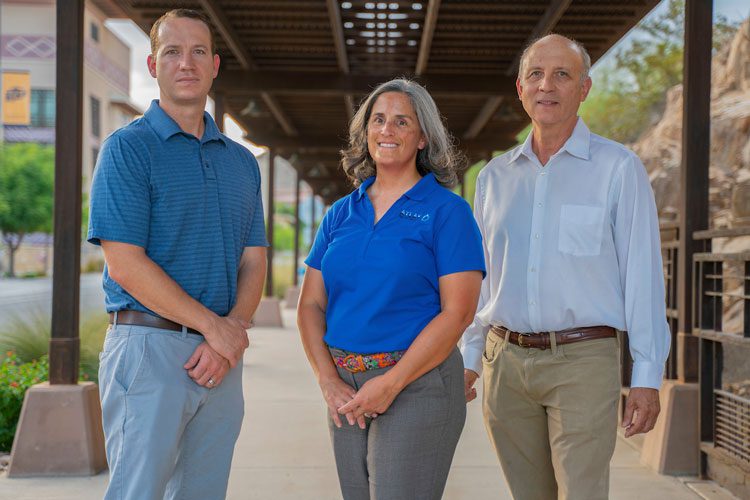Meet the 2021 Innovation Incubator Cohort: Atlas Sensor Technologies
For the third year, the Danforth Center is partnering with the Wells Fargo Foundation and the National Renewable Energy Laboratory to participate in the Wells Fargo Innovation Incubator, IN2. The 2021 cohort of companies will partner with our Principal Investigators to test and validate their technologies that will help make indoor agriculture more sustainable. Keep reading to learn more about Atlas Sensor Technologies.
It is a common agriculture practice to apply synthetic nitrogen fertilizer to crops each year in order to produce enough food to feed our planet. However, modern day agriculture was not developed to be highly nitrogen efficient, and as a result, excess nitrogen fertilizer contributes to climate change through greenhouse gas emissions. It also pollutes waterways and oceans: according to the EPA, nearly half of U.S. rivers and streams have excess nutrients, causing algal blooms, fish kills, and impaired drinking water.
Atlas Sensor Technologies, a company that produces easy-to-use, cost-effective sensors for monitoring water quality, is developing new technology that will help growers monitor nitrate in their water. This will allow growers to fine-tune the water chemistry necessary for optimal plant growth while mitigating environmental harm. Together, Atlas’ suite of sensors allow for real-time detection of water quality, improve the reliability of water treatment equipment, and reduce negative impacts from waste.

From left to right, Joshua Ladd, MBA, Vice President; Malynda Cappelle, PhD, MBA, Chief Operating Officer; David Nemir, PhD, PE, President and CEO
Through the IN2 program, Atlas Sensor Technologies is collaborating with Ivan Baxter, PhD, Member, and others at the Danforth Center, and Lance Wheeler, PhD, Researcher III-Materials Science, at National Renewable Energy Laboratory. “One of the things that makes studying nitrogen dynamics in an agricultural setting so difficult is that it is hard to know where the nitrogen is going,” explains Ivan Baxter. “The Atlas Sensor technology would allow us to track N going out of the system and allow us to better understand what is going on in our experiments.”
“These experts will evaluate our nitrate sensors in several use cases, analyze our sensor materials, and accelerate the deployment of our technology into indoor and outdoor agriculture locations,” says Malynda Cappelle, Chief Operating Officer of Atlas Sensors. “Atlas is excited to be a part of the IN2 program because it will help us move forward with developing our next sensor and will give us access to a wider range of expertise and investors.”